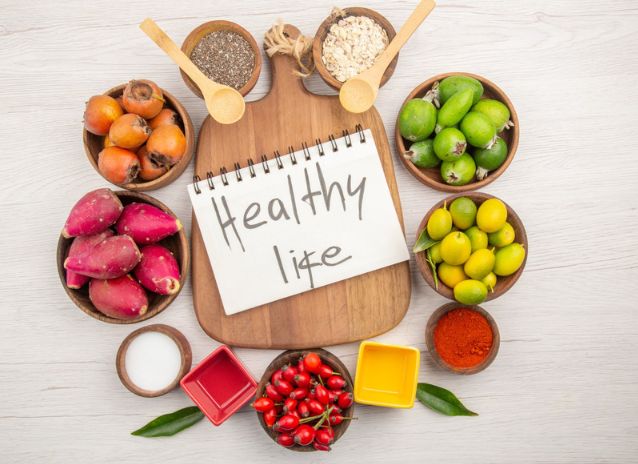A balanced, healthy lifestyle starts with your daily food choices, not just an exercise program or a mental health workout plan. Your physical health, mental stability, energy levels, and even the quality of your sleep are directly related to the foods you eat. Creating a healthy eating plan requires informed decisions, variety, and consistency, not rigid guidelines or blindly following trends. Sticking to a sustainable, mind- and body-nourishing diet is more beneficial in the long run than focusing on rapid weight loss or cutting out whole foods.
Make Whole Foods Your Cornerstone
Whole, minimally processed foods are always the cornerstone of a healthy diet. These foods come straight from nature: fruits, vegetables, whole grains, legumes, lean proteins, and healthy fats. They are rich in fiber, vitamins, minerals, antioxidants, and other nutrients that your body needs to function optimally. When your meals consist of real foods instead of packaged or processed foods, your diet will be naturally better. Additionally, whole foods are more filling, which reduces the chance of overeating and increases your chances of maintaining a healthy weight without too much effort.
Enjoy Foods of Different Colors and Textures
Choosing a wide variety of foods is one of the best strategies for ensuring a balanced diet. Fruits and vegetables of different colors are rich in various vitamins and antioxidants, so having a wide variety can benefit your overall health. Each food has its own unique benefits: leafy greens are high in iron and calcium; berries are rich in antioxidants; orange vegetables like sweet potatoes and carrots are abundant in vitamin A; and beans provide dietary fiber and plant-based protein. Adding different textures and flavors also makes food intriguing and promotes a healthy diet.
Stay Hydrated to Support Energy and Digestion
Although water is just as important as the food itself, it is sometimes overlooked in the discussion of nutrition. Water aids in waste removal, digestion, circulation, and nutrient absorption. It promotes healthy skin, helps maintain energy levels, and even prevents unnecessary chewing, as thirst is often mistaken for hunger. Adequate hydration throughout the day keeps the body functioning smoothly and the appetite under control. In general, take frequent sips of water, carry a reusable water bottle, and drink more water in hot weather or during exercise.
Listen to Your Body’s Hunger and Fullness Signals
A healthy health plan largely depends on mindful eating. Instead of eating out of habit, stress, or boredom, listen to your body’s signals. Eat when you’re truly hungry and stop eating when you feel full—that’s what “listening to your hunger signals” is all about. Avoiding distractions like electronic devices or multitasking while eating will help you better recognize these signals. Mindful eating helps you enjoy your food more, feel satisfied with less of it, and avoid overeating.
Limit your Consumption of Processed Foods and added sugars.
Limiting foods high in refined ingredients and added sugars is one of the most effective dietary tips. These foods include sweets, processed snacks, sweetened beverages, and baked goods, which have little nutritional value but can raise blood sugar levels and trigger cravings. Excessive sugar intake has long been linked to increased risk of chronic diseases such as inflammation, heart disease, and diabetes. Processed foods are often high in harmful fats, salt, and synthetic ingredients, so replacing them with whole foods can help your body heal, rejuvenate, and function properly.
Prepare Meals at Home to Stay in Control
Cooking at home gives you control over the ingredients, portion sizes, and cooking techniques of each meal. It also lets you enjoy meals more mindfully by connecting with your food. Home-cooked meals are generally healthier than restaurant or takeout meals, which can sometimes be high in sodium, fat, and calories. Meal planning and preparation can help you make smarter decisions faster and achieve your health goals. Cooking also gives you the opportunity to explore different flavors and discover which foods give you the most energy.
Be Flexible and Enjoy your Meals
Perfection is not the goal of a balanced, healthy lifestyle. You should leave room for indulgence—including your favorite sweets—without feeling guilty. All meals fit into a healthy lifestyle as long as they are eaten in moderation. Stress, overeating, or unhealthy food addictions can all result from an overly restrictive diet. Instead, focus on making nutritionally sound decisions and allow life events to dictate a certain amount of flexibility. A setback, a piece of cake at a party, or a dinner with friends cannot be part of your fitness journey.
Conclusion
Sustainability, variety, and self-awareness define the best diet for healthy living. Healthy eating means developing habits that respect your body, honor your appetite, and support your energy and mood, rather than following a trend or being too rigid. Choosing whole foods, eating mindfully, staying hydrated, and eating balanced meals all form a foundation for health and support all aspects of your life. A nutritious diet is an investment in your future and an act of self-love. Good eating habits become natural and enjoyable when you maintain them patiently and consistently.
FAQs
What is a balanced diet?
For overall health, a balanced diet includes various whole foods, including the right amounts of carbohydrates, proteins, fats, vitamins, and minerals.
Do I need to count calories to eat well?
Not necessarily. A more successful and sustainable approach than strictly tracking calories is to eat whole foods, eat mindfully, and listen to your body’s fullness and hunger signals.
Can I still enjoy my favorite foods while eating healthy?
Absolutely. A balanced diet allows you to treat yourself occasionally and stay flexible. Enjoying the foods you love without sacrificing your health is all about moderation and focus.
How much water should I drink per day?
Although individual preferences may differ, it’s generally recommended to aim for 8-10 glasses of water daily. Activity level, air temperature, and overall health can all affect hydration needs.
Why should a healthy diet include variety?
Eating various foods ensures that your body gets all the nutrients it needs and keeps meals enjoyable and satisfying.




